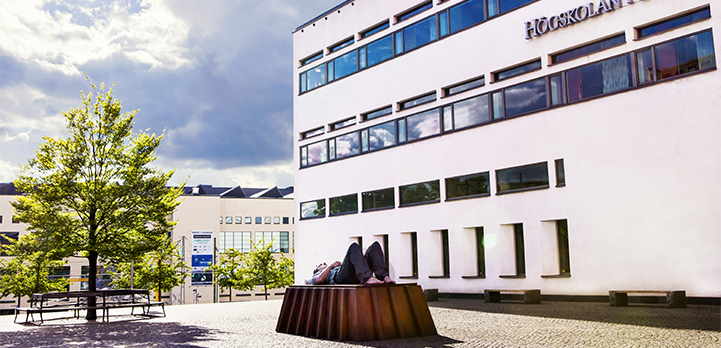UKÄ interviews employees: ”Benefits our development”
2020-04-29

UKÄ site visits are part of the authority's review of the university's quality system for research, and are included as part of a pilot study in which three higher education institutions are the first to be audited. The UKÄ visited the university in mid-March and now it is time for in-depth interviews with employees and doctoral students from different parts of the university.
Hello Kim! How was the visit on 12 March? 
"UKÄ interviewed people in several different groups: the university's leadership, Deans of Faculty, research group leaders, doctoral students, boards, members of Professional Services, and others. We thought it was a good visit and they had good questions. UKÄ has since announced which issues they wish to delve into further. Above all, they want to know more about how we use the results that we obtain from our quality system. Questions relate to, for example, how we use statistics, such as bibliometrics, which are generated by our system when we allocate funding to researchers. They also want to see examples of research plans, our plan for gender equality, and policies around who can use our infrastructure such as labs and the library, to name a few things.”
“What I think is important about this work and these visits is that we are doing this for our own benefit, for the University of Borås. It's not some kind of test. For example, if we find it difficult to understand what UKÄ is asking for, then we go back to them and ask for clarification. This is a collaboration between us and UKÄ that benefits our development.”
As an employee at the university, how familiar should you be with the quality system for research?
"Research group leaders and researchers need to be informed and know what is expected of them, as it affects them more directly. Generally for all employees, it is important to know that we have a system, and that we are developing it further. In 2020, we are taking a major step when it comes to further development. The audit itself will help us get there, and it is very important for the university that we have an optimal system in place. We must not be careless here.”
How does the coronavirus crisis affect this process?
“Not much, so far. The biggest effect is that our employees have a much tougher work situation and that the in-depth interviews will probably take place via Zoom. The feedback we have received from employees is that Zoom works better than expected.”
Text: Lina Färm
Photo: Suss Wilén
Translation: Eva Medin

